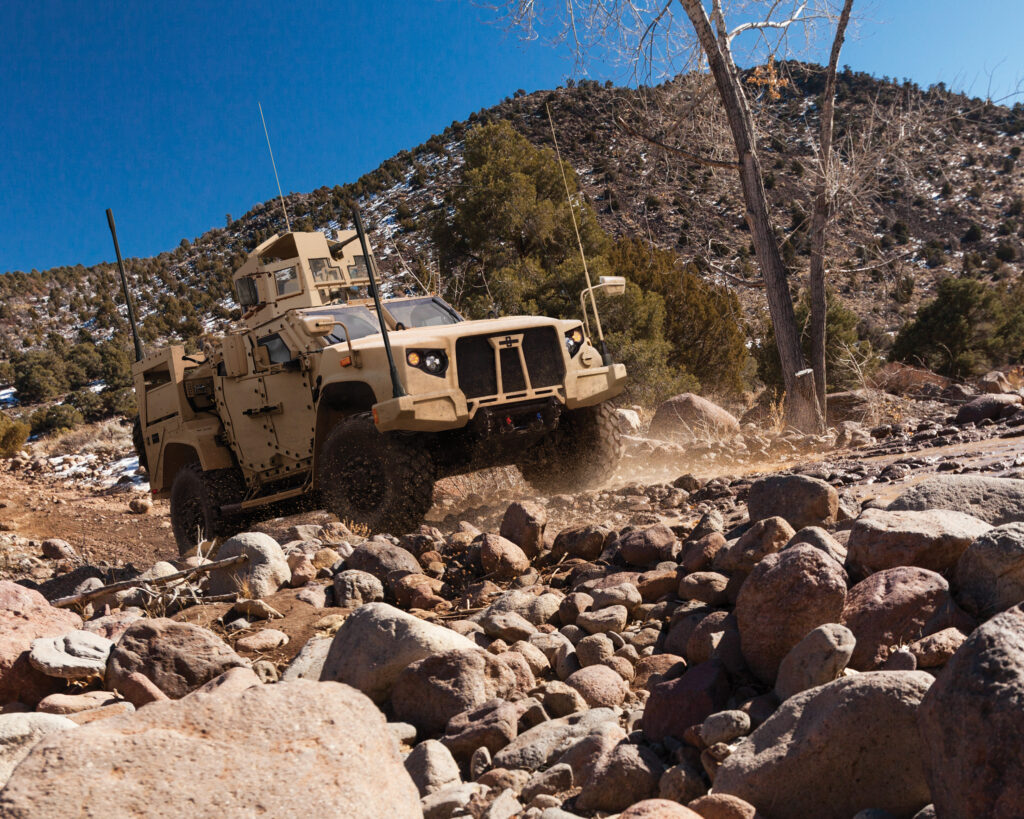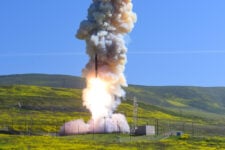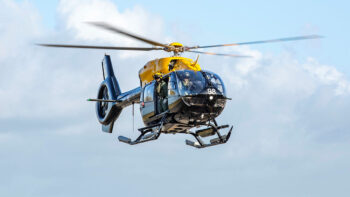
Oshkosh’s offering for JLTV
Two weeks after the Army awarded the Joint Light Tactical Vehicle contract to Oshkosh, losing bidder Lockheed Martin filed a protest. With the potentially 55,000-vehicle JLTV program on hold until late December, when the Government Accountability Office makes its ruling, Oshkosh is doing everything it legally can to get ready to resume.
The protest “is like hitting the pause button on a DVR,” said John Bryant, senior VP for defense programs at Oshkosh. “Once it’s over, they hit play, and we have to continue the program as if it never stopped.” If GAO rules that Oshkosh gets to keep the contract, the company will have to provide the government certain deliverables, such as data and models, “within days” of the decision, Bryant told me. It needs to be ready.
That’s tricky, because legally the program is frozen. “Oshkosh is currently in a stop-work on the JLTV program,” Bryant emphasized. “The government is not incurring any obligations right now.”
But, Bryant said, there are things the company is allowed to do in-house, on its own initiative, and on its own dime. Oshkosh is already working on data and initial deliverables for the government, for example. Oshkosh employees can comb through the contract to see what’s due to the government at what time, as long as they’re not actually working on the things that are due. They can make sure their multi-purpose production line — which builds everything from military vehicles to snowplows — is ready to go, as long as they’re not actually making a JLTV.
“We want to make sure that the impact of the protest is minimal for our government customer,” Bryant said.
Now, there’s always the possibility that GAO could find the competition fundamentally flawed and invalidate the award to Oshkosh. Lockheed Martin declined to comment for this story, referring me back to their original statement raising unspecified “concerns regarding the evaluation of Lockheed Martin’s offer.”
Bryant, unsurprisingly, was happy to defend the Army’s decision-making. “As a government program manager in my past life,” he said, “I can tell you the process involved in the JLTV source selection [was] more thorough, disciplined, and definitely more quantifiable than most source selections I had been involved with on the government side.”
“Based on the [post-award] debrief, we’re more confident than ever that the decision to award the JLTV contract to Oshkosh will in fact be upheld,” Bryant said, “and our soldiers and Marines will get this vehicle after what amounts to a relatively short delay” — as short, in fact, as Oshkosh can legally make it.
Move over FARA: General Atomics pitching new Gray Eagle version for armed scout mission
General Atomics will also showcase its Mojave demonstrator for the first time during the Army Aviation Association of America conference in Denver, a company spokesman said.


























